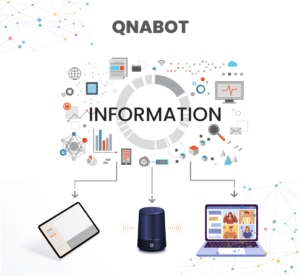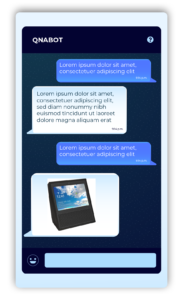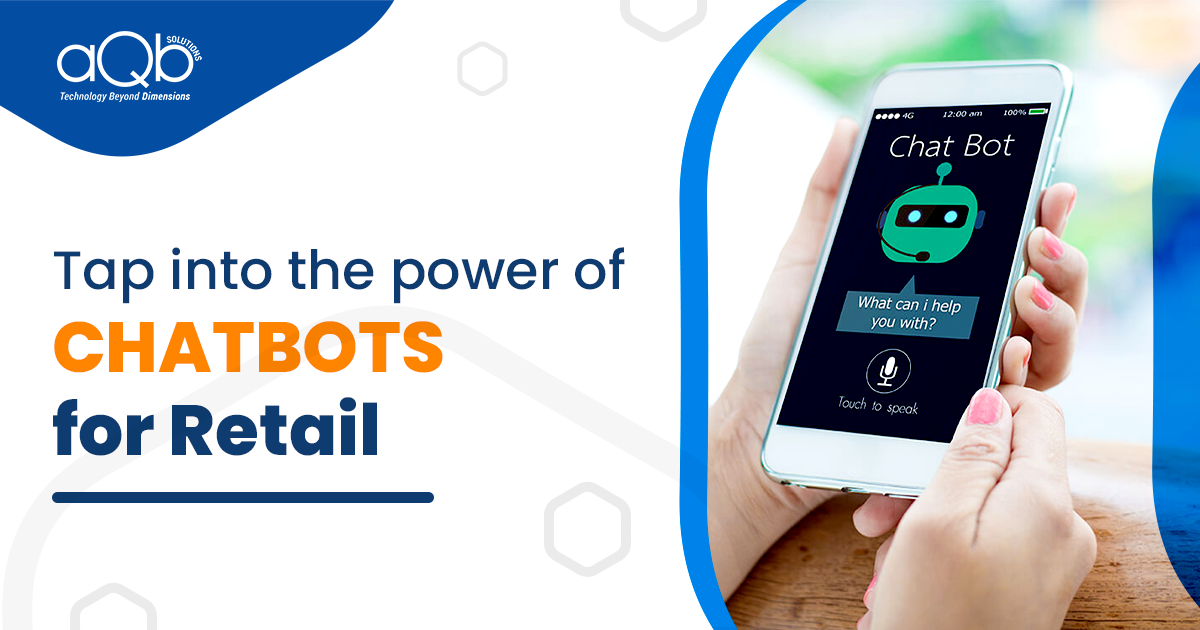Technology is a strategic imperative for retailers of today if they are to stay profitable and relevant. Among a myriad of technologies retailers use, chatbot automation has taken the retail industry by storm and made massive changes in retail businesses, but for the good!
Amid cut-throat competition, every retail business strives to become the go-to-place for their customers. They know that the only way to achieve this is by providing superior customer experience. Hence, retailers are tapping into the potential of chatbots to serve their customers in a more personalized way.
Chatbot automation is the key to personalized client management as well as high-value customer experiences.
The near future of online shopping looks like this – everything shall happen digitally by AI chatbots. The chatbots can automatically browse through the history of already purchased items, scan messages, and help to analyze customer behavior. All this can help chatbots to offer customers a plethora of items of their taste. Hence, chatbots come with a much higher level of targeting capabilities as compared to customer support representatives.
Moreover, customers prefer quick, convenient, and personal support, 24/7. And chatbots can cater to this need of customers very well.
The online retail industry sees the highest customer acceptance of chatbots. 34% of online retail customers accept AI chatbots, which is more than any other sector.
What makes chatbots a must-have for retail businesses?
As per a National Retail Federation survey, 54% of consumers go online to buy something. The factors that make them choose a certain brand to purchase from are:
- The ability to identify customer needs easily and quickly (58%)
- High-quality customer service (44%)
- Simple and fast checkouts (42%)
Chatbots have these features embedded in them. This makes them highly valuable integrations with retail websites as well as other communication platforms.
Applications of Chatbots
Following are some of the prime applications of chatbots for retail businesses:
-
Customer Support Chatbots
These are one of the most popular chatbot applications. These AI chatbots carry out all tasks otherwise performed by a customer support representative. The features like live chat facilities, instant replies, easy and quick solutions, and 24/7 availability make customer support chatbots an effective tool for improving customer service.
These chatbots not only improve the communication between brands and their customer base but also create a rapport with customers that helps brands with clienteling as well as earn brand loyalty. Moreover, the bots collect customer feedback and provide it to your team, allowing you to make improvements in your problem areas.
Chatbots are effective tools to perform relationship retailing for businesses. Through the strategy of relationship retailing, businesses can build long-term relationships with customers and create loyalty. Businesses can perform relationship retailing by offering customers loyalty programs, superior customer service, or personalized experiences, all of which can be facilitated by chatbots.
Customer support chatbots allow customers to interact with businesses easily through stimulating conversations as well as contribute to increasing revenue.
-
Marketing and Sales Chatbots
Marketing and sales chatbots have the ability to personalize customer experiences, reach a broader audience, analyze customer data and feedback, send relevant notifications to customers, and move customers through the sales funnel seamlessly.
In the e-commerce context, marketing and sales chatbots allow customers to browse through products from the chatbot directly. In the chatbot, businesses can send customers product images through carousels as well as link their website so that customers can purchase.
These chatbots can also inform customers about limited-time sales or urgent promotions offered by the business, facilitating high speed retail and driving flash sales.
Use Cases of Chatbot in Retail
Chatbot automation can be used in retail for a variety of purposes. Listed below are some chief use cases of chatbots for retail businesses:
-
Searching for Products
Chatbots can greatly help consumers in products search when they are on the website of a business. Throughout the conversation, the bot can show a selection of products according to the preferences of the customer about the product, like the features, price, and the ratings and comments of other customers about the product.
Many customers want the experience of webrooming, i.e., looking at items online first and then buying them from brick and mortar stores. Chatbots can effectively cater to this need of customers by showing them their preferred products online.
-
Locating Nearby Stores
A customer might want to try on or see a product they found while browsing your website. They might want to physically visit your store to do so. A chatbot can help the customer to locate stores nearby, and know the opening hours.
Brick and click companies widely use chatbots, and chatbots can effectively cater to their customers’ queries. Chatbot automation can also be used by stores that offer click-and-collect services.
-
Product Recommendations
The integration of recommendation engines with chatbots can help customers to find products fitting well with their preferences, and in turn help retailers to boost revenue.
Chatbots can also help in cross merchandising to drive add-on sales. They can strategically display specific items from different categories together, which customers usually buy together. For example, people often need batteries when they buy electronic goods. Hence, displaying these two items together to customers can drive more sales.
-
Pre-orders and Place Orders
Through a chatbot, a customer can select the item they want to buy, provide their contact information and address, and place an order. In addition, the chatbot can offer details about the upcoming products that match the customer’s intent, and allow the customer to pre-order new products once the business starts shipping.
Offering information about upcoming products to customers can also drive impulse purchases, as a customer may not have planned to buy that product earlier, but buys it impulsively when they are given information about it.
-
Tracking Packages
Chatbots are highly helpful for customers to track packages. Once a customer places an order via a chatbot, the customer can ask the chatbot where the package is, time and date of delivery, what post service is being offered, and obtain their contact information through the chatbot.
-
Sending Personalized Notifications
During a conversation, chatbots usually ask customers for their contact information. This allows retailers to send personalized notifications and updates to customers about new products, seasonal or annual sales, and events and branch openings. Retailers send these notifications and messages according to a customer’s previous orders, searches, preferences, demographics, and information.
Some of Our Chatbot Ventures
aQb Solutions has built several AI chatbots, some of which can serve as highly beneficial tools for the retail industry. Below we discuss some of our chatbot projects:
Question Answering Chatbot
An innovative type of chatbot developed by our team, the question answering chatbot provides accurate answers to customers’ questions. When a customer types a question in the chatbot, the chatbot scans through the vast repository of content in the backend, and selects only the answer portion from there and shows it to the customer.
Information Bot
This type of chatbot aims to give information about certain topics, and provides output in text form to inputs given by customers in text form. A customer may want to know about the features of a product, its availability, cost, and other details. The chatbot, leveraging fuzzy/elastic search mechanisms, can instantly provide the necessary information to the customer in the form of clear, easy-to-understand text.
Image Input Text Output Chatbot
This chatbot gives replies in text form to customers’ queries in image forms. For example, a customer might want a product similar to the one they purchased earlier from your brand. In that case, they might take a picture of the product and upload it to the chatbot. The chatbot can immediately provide them information about what the product is, its availability, its cost, and more.
Question and Answer Bot
We built an innovative Question and Answer Bot meant to be used by a smart city development organization. The bot leverages Amazon Lex and Google Dialogflow to offer a conversational interface for the questions and answers.

The key features of this chatbot are:
- The chatbot understands the user intent behind search queries by users and gives answers accordingly. For example, if a user types “New Town” in the chatbot, it understands that the user might be wanting to know where New Town is, and gives the answer accordingly.
- The bot shows several related questions to the user, when the user enters a question. The user can click any of the related questions, and the bot provides the answer to it instantly.
- Users can give voice commands to the bot, for which it provides answers in voice form.
- This Amazon Lex chatbot offers auto search facility, showing suggestions, like Google.
- The bot can give answers in image form according to the user’s question. For example, if the user types “Pictures of Biswa Bangla” in the chatbot, it shows the user images of Biswa Bangla.
- The chatbot has a user authentication feature.
- The NLP engine for the chatbot is Amazon Lex or Google Dialogflow.
- The NLP engine enables the chatbot to generate questions that are commonly asked by users.

Adding images to answers
Concluding Thoughts
With the massive potential of progress chatbots bring to the table and the plethora of ways chatbots can be used in retail, it’s only smart for retailers to embrace chatbot automation sooner rather than later. With customer service and customer experience at the heart of retail business growth, chatbots can take retail businesses to the next level.
Besides, to truly thrive in today’s times of keen competition, retail businesses need to embrace the concept of omni-channel retailing. This means they need to establish their presence on multiple platforms and channels, like mobile, online, brick-and-mortar, etc. Implementing chatbot technology can assist retailers in functioning seamlessly on all platforms and driving sales.
For retail businesses that get chatbot technology right, the rewards of implementing it will be well worth the investment. Experience chatbot automation at its best with the experts in the field by your side. aQb Solutions can build an out-of-the box chatbot customized to your retail business. To grab the growth opportunities chatbots offer, get in touch with us today!




